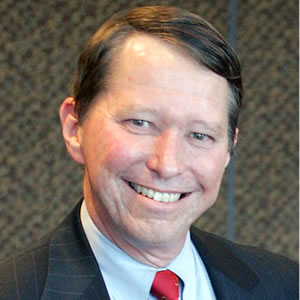When Stephanie, the CMO of a biotech company, was laid off, what did she do first?
She grabbed a spoon and attempted to soothe her sorrow with an entire pint of Ben and Jerry’s Chocolatey Love A-fair, with an assist from the sixth and final season of Better Call Saul (now streaming on Netflix, by the way. Superb!).
After realizing she wasn’t going to find a new job at the bottom of the bowl, she put her spoon in the sink and got right down to business.
Stephanie’s first move was typical. It’s natural to grieve, even throw yourself a short pity party. This is natural, and it’s okay to do what you need to do to process how you’re feeling before getting started on a search.
Yet according to an ExecuNet poll, most executives would do something entirely different – and I gotta tell you, it’s not what we advise here at ExecuNet.
When asked, “If you were about to lose your job, what would you do first?” a whopping 59% of executives said they would update their resume, while 8% said they would panic. Another 17% said they would tell people. And 16% said they would do something different – I can tell you that only a small portion of this segment have what I would call the right idea.
So, what do we advise?
The following is a crucial to-do list any executive who fears being laid off should follow (it applies equally to anyone who has lost their job):
- Process your emotions.
- Reflect on what you really want to do in your Next Great Next.
- Remain positive and stay motivated.
- Craft the narrative of your story to highlight the value you’ll bring to your next opportunity.
- Update your resume and LinkedIn profile.
- Reach out to your network.
What you do is feel the emotions in whatever way is right for you… then you evaluate your needs and wants. Next, you do research. Getting some career coach assistance is a good idea, and in that stage the resume will be addressed.
The executive resume is not simply a list of job titles and responsibilities. It’s a personal marketing document that’s designed to demonstrate value and tell a story around that value to position you for a specific role. It’s not something that can be updated in an afternoon, or at all without an experienced objective advisor. We cannot be objective about ourselves; we’re too invested in everything. As one of our Career Strategists says, “you can’t read the label if you’re in the bottle.”
This is just a highlight, but I think it gets across the point that there are better options than jumping right into redoing your resume.
As I wrote last time, take that first step toward career happiness. In this scenario, take time to care for the inner you, then start to identify what you’d be passionate about. If you would like some help at that point, you know where to find us!






